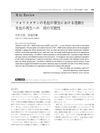Activin Controls Skin Morphogenesis and Wound Repair Predominantly via Stromal Cells and in a Concentration-Dependent Manner via Keratinocytes
September 2005
in “
The American journal of pathology
”

TLDR Activin helps skin growth and healing mainly through stromal cells and affects keratinocytes based on its amount.
The study demonstrated that activin, a member of the transforming growth factor-beta family, played a significant role in skin morphogenesis and wound repair, primarily through stromal cells and in a concentration-dependent manner via keratinocytes. Transgenic mice overexpressing activin in keratinocytes exhibited epidermal thickening and dermal fibrosis, while those overexpressing the activin antagonist follistatin showed the opposite wound-healing phenotype. Mice with a dominant-negative activin receptor in keratinocytes had normal adult skin architecture but experienced delays in hair follicle morphogenesis and wound re-epithelialization. The findings indicated that endogenous activin predominantly influenced skin morphogenesis and repair through stromal cells, but overexpressed activin had a strong impact on the epidermis, with its effects on keratinocytes being dose-dependent.



